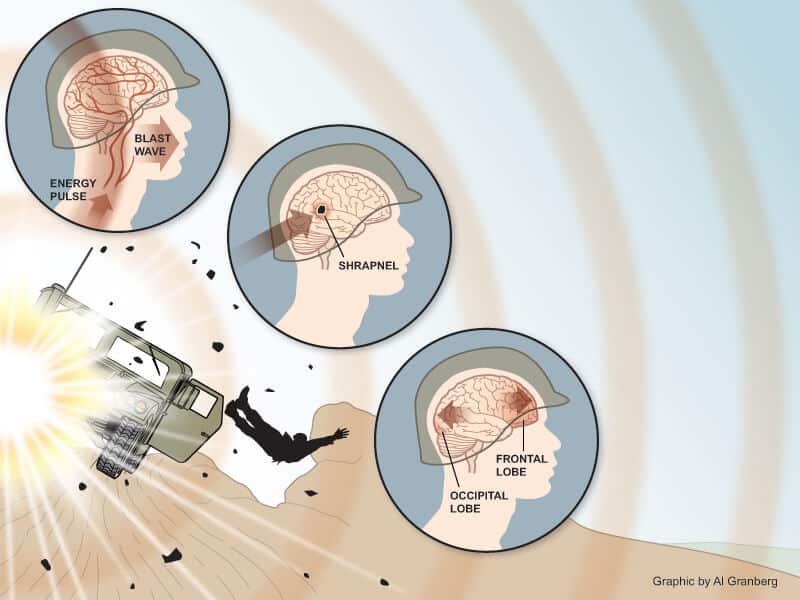Whatever empires do abroad eventually comes home. Yet another unintended consequences come home in a tidal wave.
This is personal; I was diagnosed with Traumatic Brain Injury in 2019. I spent nearly a quarter century in the US military. I know there’s a connection. This isn’t isolated to the military, concussion in amateur and professional sports is real along with a number of blue collar jobs. The downstream effects of so many soldiers deployed overseas in combat theaters for the first two decades of the 21st century will resonate through American society for generations and even on the margin, accelerate civilizational decay. It may be yet another manifestation of the competency crisis in the chaos avalanche of American incipient degradation now.
Aside from the moral injury from war that every soldier with a conscience takes to the end of his life, here is yet another. Brain injury in the military is real.
This is yet another gift to America from imperial wars overseas.
The New York Times isolates the inquiry to the connection between brain injury and suicide but it is far greater in range effects than that. The cognition degradation is real.
I don’t normally quote the New York Times but here is a rare instance where they seem to ask the right questions and arrive at the right answers.
Ms. Collins is the reason that the brains of a high proportion of the SEALs who died by suicide made it to the Defense Department’s lab.Her husband was in many ways a typical SEAL: smart, confident, easygoing and high-achieving. He deployed to Afghanistan twice and to Iraq three times. When he was not deployed, he was away from home for hundreds of days each year in training.Combat never seemed to faze Mr. Collins, but near the end of his Navy career, he started to change in subtle ways that Ms. Collins pieced together only in retrospect. He began to avoid social gatherings. He struggled to sleep. He started to make strange, obsessive family schedules and become irritated when they were not followed. Some simple chores, like raking leaves into a tarp, started to confound him. He would step out the door to go to work, realize that he had forgotten his keys, go back inside to get them and then forget why he had returned.All were signs of brain injury. But at the time, the military generally associated brain injury with big blasts from roadside bombs — something Mr. Collins never experienced. No one was telling the troops that repeated exposure to routine blasts from their own weapons might be a risk.
The SEALs are emblematic of a much larger and more pervasive happenstance of brain injury in all the services. The combination of the day-to-day training around munitions and explosions in concert with combat operations makes for a lethal cocktail that arguably, even in a correlative fashion, ends up causing significant brain and cognitive degradation and failure.
The men who died by suicide represent only a small fraction of the career SEALs with signs of brain injuries after years around blasts.Several SEAL veterans said in interviews that many of their former teammates are now divorced and grappling with depression, paranoia and substance abuse — all of which can be caused by deteriorating brain function. Desperate calls from suicidal friends are common, they said.Ms. Metcalf saw how broad the problem was when she read the letter her husband had left about his brain injury symptoms to two of his SEAL friends.
“One of them was crying on my lap, saying, ‘That’s me, that’s me,’” she said. “And the other told me a lot of them have problems, but don’t know what to do.”
https://archive.ph/MzZMw
Great insight in 2022 from a SOF conference on Brain Injury:
SOF Health Deep Dive: Traumatic Brain Injury
Email me at cgpodcast@pm.me.
































